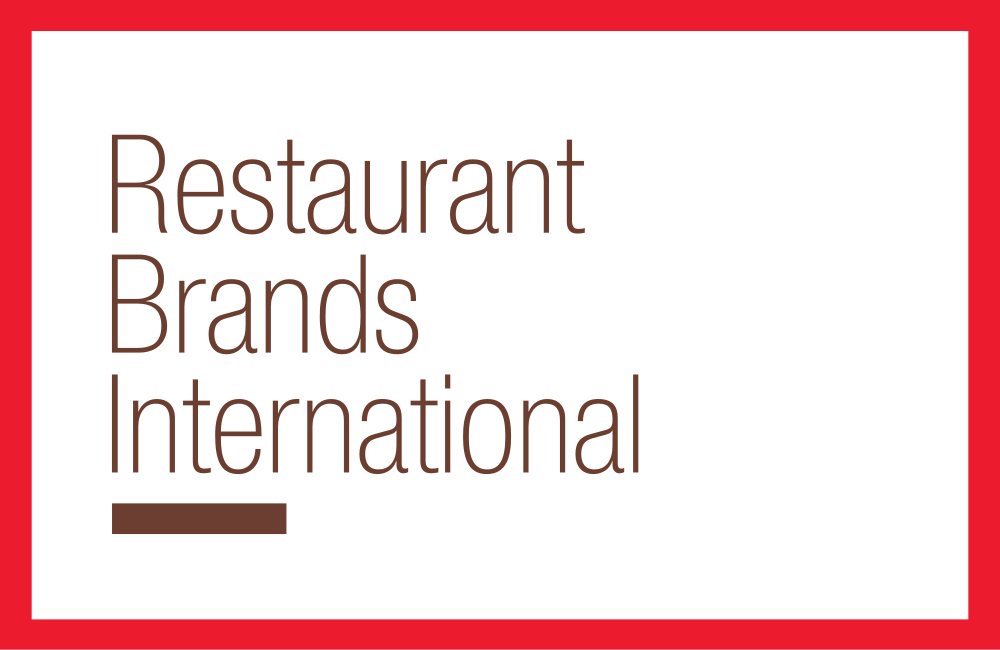Business and Economy
Restaurant Brands International to review ‘no poach’ franchise agreements

Restaurant Brands International, which owns Tim Hortons, Burger King and Popeyes Louisiana Kitchen, includes such a clause in agreements with its franchisees in Canada and the U.S. where it boasts more than 10,000 restaurants. (Photo By Restaurant Brands International – Restaurant Brands International, Public Domain)
One of Canada’s largest fast-food companies says it will review a controversial clause in its franchisee contracts less than a week after numerous competitors in the U.S. dropped similar language from their contracts to avoid an antitrust lawsuit.
The so-called no-poach clause — in which franchisees sign agreements prohibiting them from hiring employees from other franchisees — is common, but has recently caused concern it may stifle wages and prompted a rethinking of practices by large operators.
Restaurant Brands International, which owns Tim Hortons, Burger King and Popeyes Louisiana Kitchen, includes such a clause in agreements with its franchisees in Canada and the U.S. where it boasts more than 10,000 restaurants.
RBI spokeswoman Devinder Lamsar called it “a fairly standard practice for years” in the retail and restaurant industry.
“Franchisees invest heavily in training their team members and they have always shared an interest in encouraging their best talent to stay with their restaurants,” she said in a statement.
However, the parent company indicated it is aware of recent questions surrounding the practice.
“We will be speaking with our franchisee advisory boards in the coming couple of weeks with a view to changing this clause to reflect a more mobile workforce,” Lamsar said.
The shift would put it on par with seven fast-food giants who last week committed to ending the practice in the United States to avoid a lawsuit from the office of the Attorney General for Washington State. According to a statement, the Attorney General’s office launched an investigation into the practice this year as the clauses may violate antitrust provisions in the state’s Consumer Protection Act.
The practice came into the spotlight after two Princeton University academics released a working paper in late 2017 that examined documents from the year 2016 for all franchisors with more than 500 outlets in the U.S. and found that 58 per cent of contracts included such a clause. Eighty per cent of the 40 quick-service restaurant operators included in the paper enforced a no-poach rule.
The paper suggested the clauses may suppress wage growth.
“It might help explain a recent puzzle in the U.S. job market,” the paper reads, adding unemployment is low and job openings are high, but wage growth “has remained surprisingly sluggish.”
In the tight job markets of Canada and the U.S., experienced workers should be able to ask for higher wages when negotiating for a new job but can’t because the clause doesn’t allow other franchises to hire them, said Maurice Mazerolle, an associate professor at Ryerson University’s Ted Rogers School of Management in Toronto.
“In theory, in a tight labour market it basically means you’re not going to be able to bid up wages to compete for those experienced workers.”
The clause also limits opportunities for the employees to increase their employment hours by working at a number of different locations, he said.
The data for the paper was provided by FRANdata, a franchise market-research firm. A company spokesperson said it could not provide similar data for Canadian franchises as it lacks complete information for the country.
The Canadian Press asked more than a dozen eatery operators on the American list with a significant presence in Canada whether they also incorporate no-poach rules into their Canadian franchisee contracts. A&W Canada, Church’s Chicken, Denny’s, Domino’s Pizza, Five Guys, Little Caesars, Panera Bread, and Pizza Hut’s parent company Yum Brands did not respond. Neither did Arby’s, Carl’s Jr., Cinnabon and McDonald’s, which are among the seven companies that recently committed to ending the practice in the U.S.
Dunkin’ Donuts, whose parent company also owns Baskin-Robbins, said it doesn’t include the clause. A spokesperson for Dunkin’ Donuts said the company removed the provision more than 15 years ago for both chains, and while it may still appear for some franchisees operating under an older agreement, it is not enforced.
“The reason why they removed the provision was, indeed, because it felt it was the right thing to do,” wrote the spokesperson in an email.
A spokesperson for Wendy’s said its franchise agreement does not have an anti-poaching provision in either country.
RBI was the sole company to acknowledge using the clause and said it was considering changing its policy as questions are being raised about the practice.
Such rules shouldn’t be looked at in isolation, as some well-managed franchise-model operations may use the rule to prevent poaching, but still allow employees to move upward or laterally between franchisees to keep good employees, said Jim Dahany, program director for the centre of excellence in retail leadership at the Schulich School of Business Executive Education Centre.
“The best companies look at this as an opportunity to share great people within the company, but not poach,” he said.
He concedes that’s the best-case scenario and there will be a range between that type of organization and “those who see each of these as little fiefdoms that are in competition with each other.”
The practice could slow wage growth at poorly managed companies, he said.
“Laggards who think that business is a zero sum enterprise.”





















